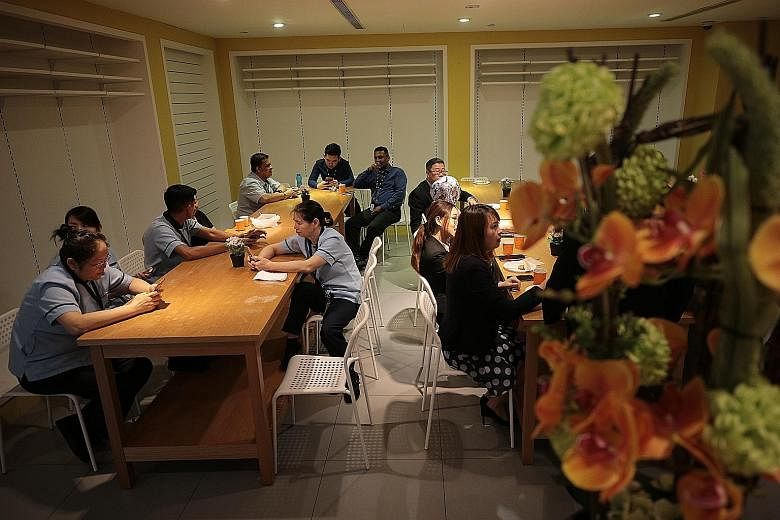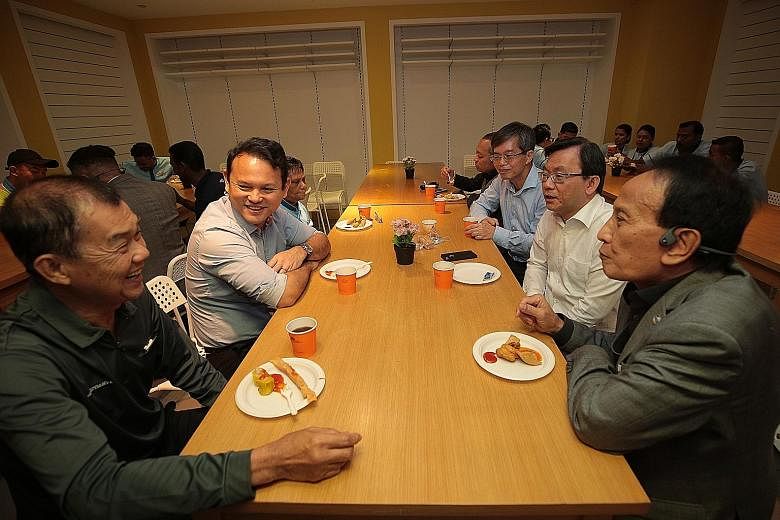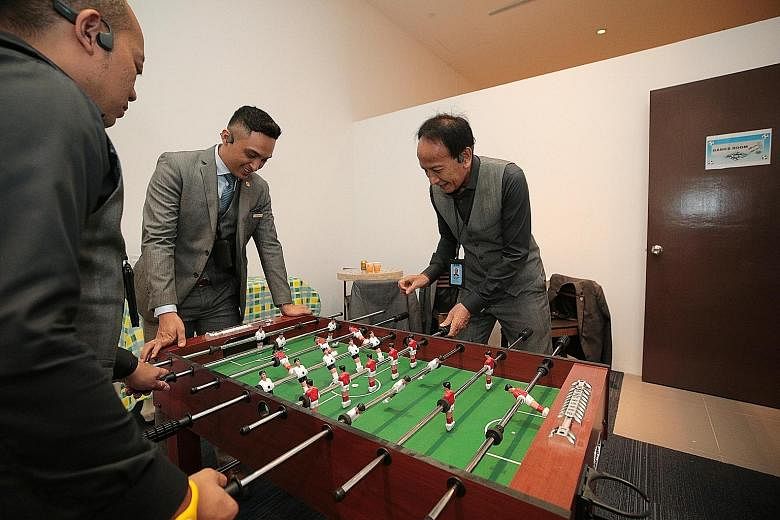By the year's end, employers can expect new guidelines on how they can provide proper rest areas for outsourced workers such as cleaners, security guards and landscape maintenance workers.
Minister of State for Manpower Zaqy Mohamad yesterday asked for the support of the unions and employers in coming up with these tripartite guidelines, which will be developed after ministry inspectors visit about 200 workplaces in Singapore to understand the current practices.
"Our lower-wage workers deserve to thrive by having decent work environments and being appreciated for the work they do on a daily basis," he said at the annual Manpower Ministry workplan seminar held at Orchid Country Club.
This is part of the ministry's new Workcare initiative, he added.
Since April 1, the ministry's inspectors have spoken with cleaners and employers at 20 sites such as foodcourts, shopping malls and commercial buildings.
"We have seen cleaners resting in open areas in carparks far from the buildings, or in small, poorly ventilated and cluttered storage rooms at the basements of commercial buildings," Mr Zaqy told about 1,000 staff of the ministry and its statutory boards, as well as union leaders.
"For sites with no rest areas, cleaners sometimes take breaks at staircase landings and bin centres away from public view."
Cleaners had said that, aside from a place to rest, they hope for basic amenities such as lockers, fans and dispensers for hot and cold water, he added.
He also said the ministry will work with government agencies to ensure they provide rest areas, and with town councils, which he said are committed to looking at ways to provide these areas for cleaners and other outsourced workers in their estates.
During the parliamentary debate on the ministry's budget last month, Mr Zainal Sapari (Pasir Ris-Punggol GRC) and Dr Intan Azura Mokhtar (Ang Mo Kio GRC) had called for rest areas to be provided for low-wage and outsourced workers.
Dr Intan, who attended the workplan seminar yesterday, told reporters she is leading the efforts in Ang Mo Kio Town Council, and hopes to have proper rest areas for its cleaners by next year.
A lot of workers are resting near rubbish bin centres, she said, adding: "If there's a way in which a proper rest area can be demarcated... where it's much cleaner, more hygienic, has proper ventilation and with basic amenities such as tables, chairs and water provided, we should strive to do that."
She also suggested that companies with space constraints could collaborate and share a central area where workers can rest.
Several building owners are leading the way, said Mr Zaqy in his speech, highlighting the rest area in Suntec City called The Crystal Place.
Opened last year, it has 400 sq m of air-conditioned communal space available round the clock for 334 users on different shifts.
There are lockers, drink dispensers that sell hot and cold drinks at subsidised prices, a spacious meal area and free Wi-Fi.
Cleaning Express, with workers deployed at Suntec, has seen a higher staff retention rate and lower absenteeism since the rest area was opened, said Mr Zaqy.
During Monday's visit to The Crystal Place, he assured employers that the ministry is not legislating rest areas, but hopes they will provide them because they see value in motivating workers.
Mr Anthony Yip, deputy chairman of APM Property Management which manages Suntec City, said The Crystal Place was converted from an empty "back-of-house" space in the mall.
"It's a space that is not so accessible to the public, but is very accessible to workers as a bus stop is round the corner and the MRT station is nearby, so we decided to reconfigure it to make it usable," he said.
Gardener Tan Cheng Hong, 70, who goes there during his hour-long lunch break, said that, before The Crystal Place was opened, he and his colleagues had to bring their own fans, tables and chairs to use in their rest area.
"This place is comfortable and clean. We can relax and feel better going back to work," he said.




